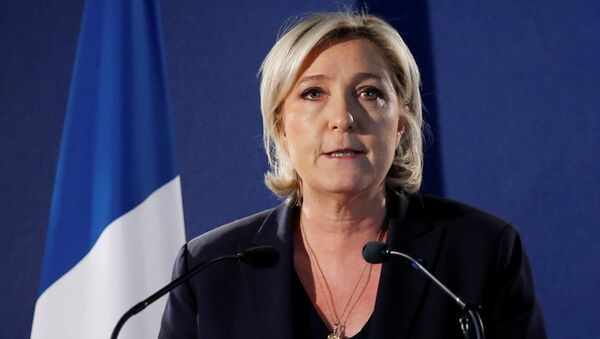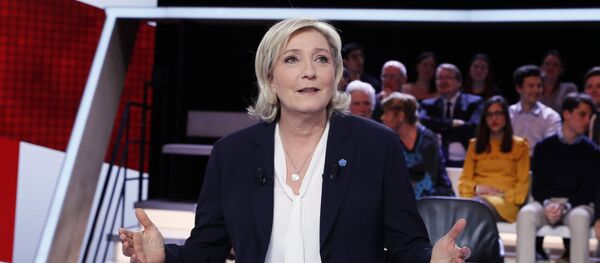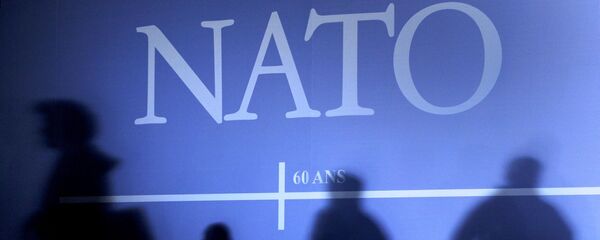French voters will cast their ballots on Sunday, choosing among 11 candidates registered for the first round of the election. The run-off between the top two contenders is scheduled for May 7.
The four most prominent candidates are far-right National Front leader Marine Le Pen, head of left-wing political movement La France Insoumise (Unsubmissive France) Jean-Luc Melenchon, the Republican Party's nominee Francois Fillon and independent candidate Emmanuel Macron.
Le Pen is well known as a strong supporter of France's withdrawal from the EU. Earlier, she vowed to start talks with the European Union's partners on France's membership, or otherwise to hold a referendum on the country's withdrawal from the union.
Her candidacy is criticized by many media outlets across the EU. However, Geiger believes that the victory of Macron or Fillon will also be associated with a lot of inconveniences, especially for Germany.
"The way toward a strong EU will be uncomfortable for Germany. After the election, France — about which the Germans have been laughing for years — will become more self-confident and stronger with the new president," the journalist wrote.
A similar opinion was expressed by the experts of the Discussion Board at the German Foreign Policy Association (DGAP). For instance, expert on French-German relations Dr. Claire Demesmay is confident that Macron and Fillon are not the best option for Germany and that Marine Le Pen will play an important role in French politics even if she doesn't become president.
"The National Front sets the tone: Islam, migration, national borders. The National Front defines the discussion and the course of the dialogue. And the National Front puts pressure on the government. We have seen this during the migration crisis. Thus, of course, it is important whether Marine Le Pen comes to power, but even if she doesn't, the National Front's influence across the country will persist," she concluded.



